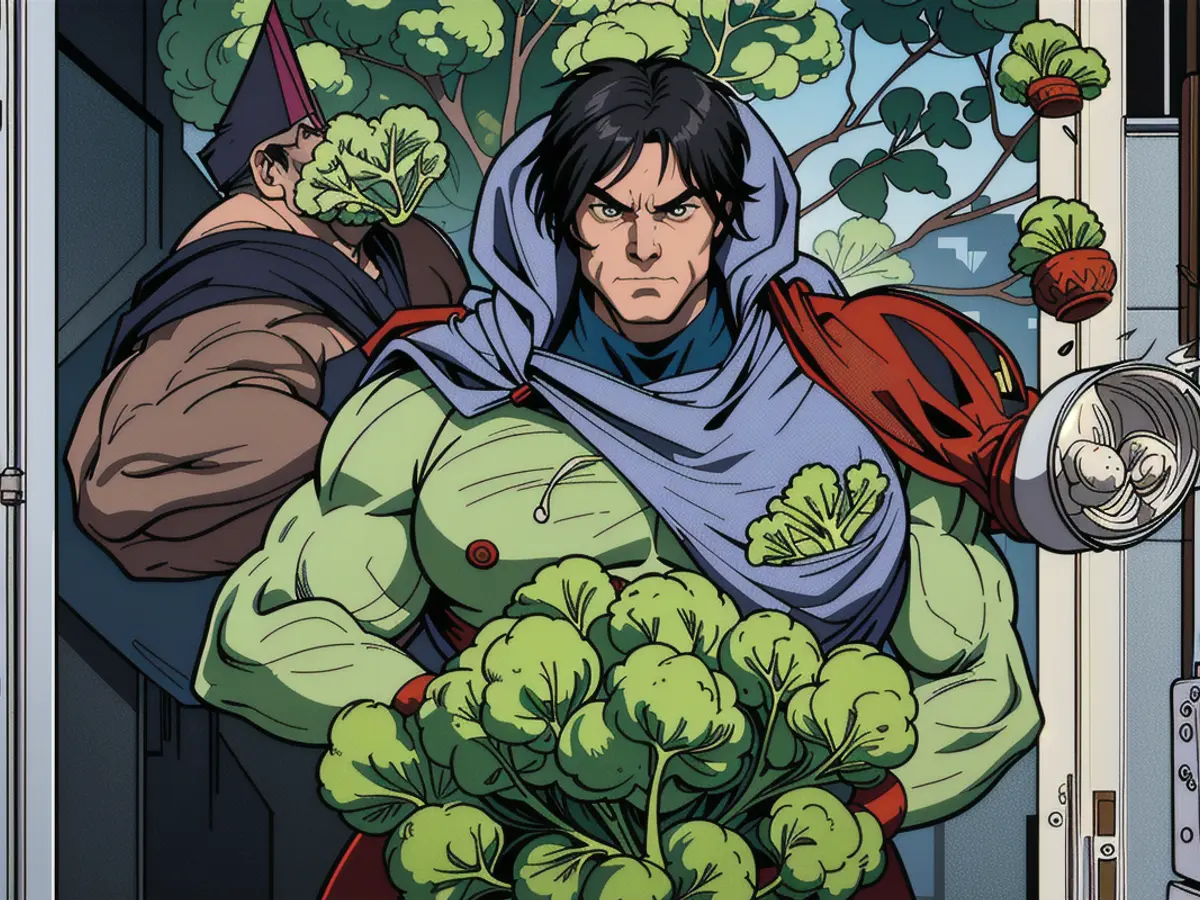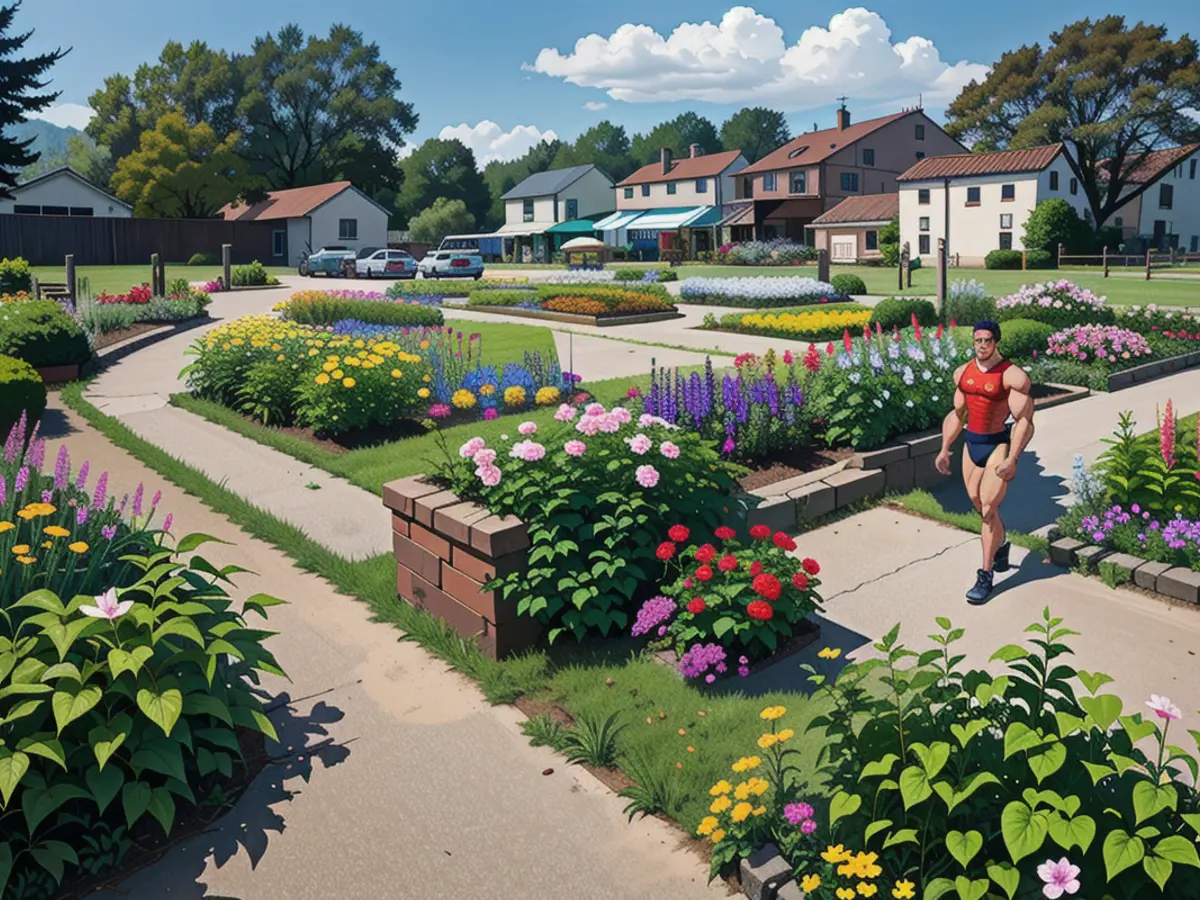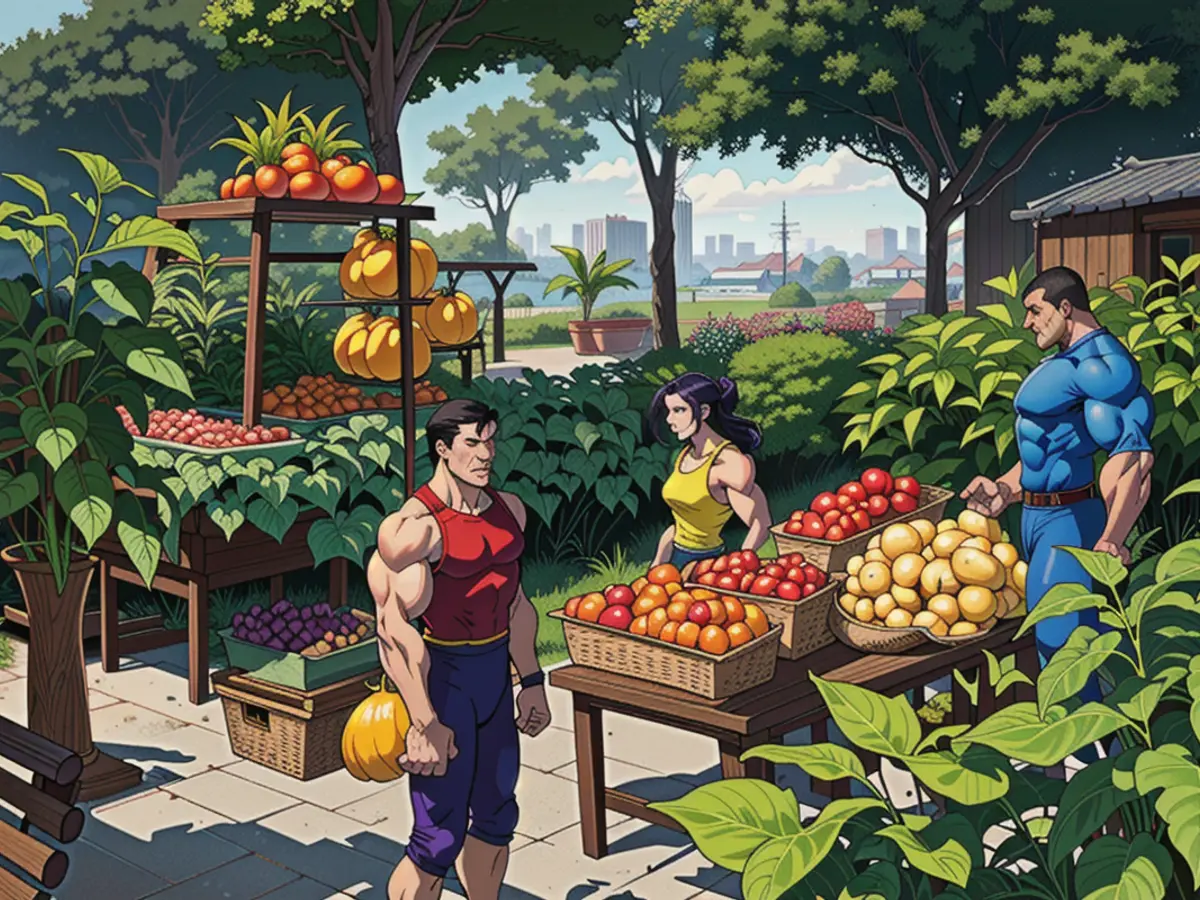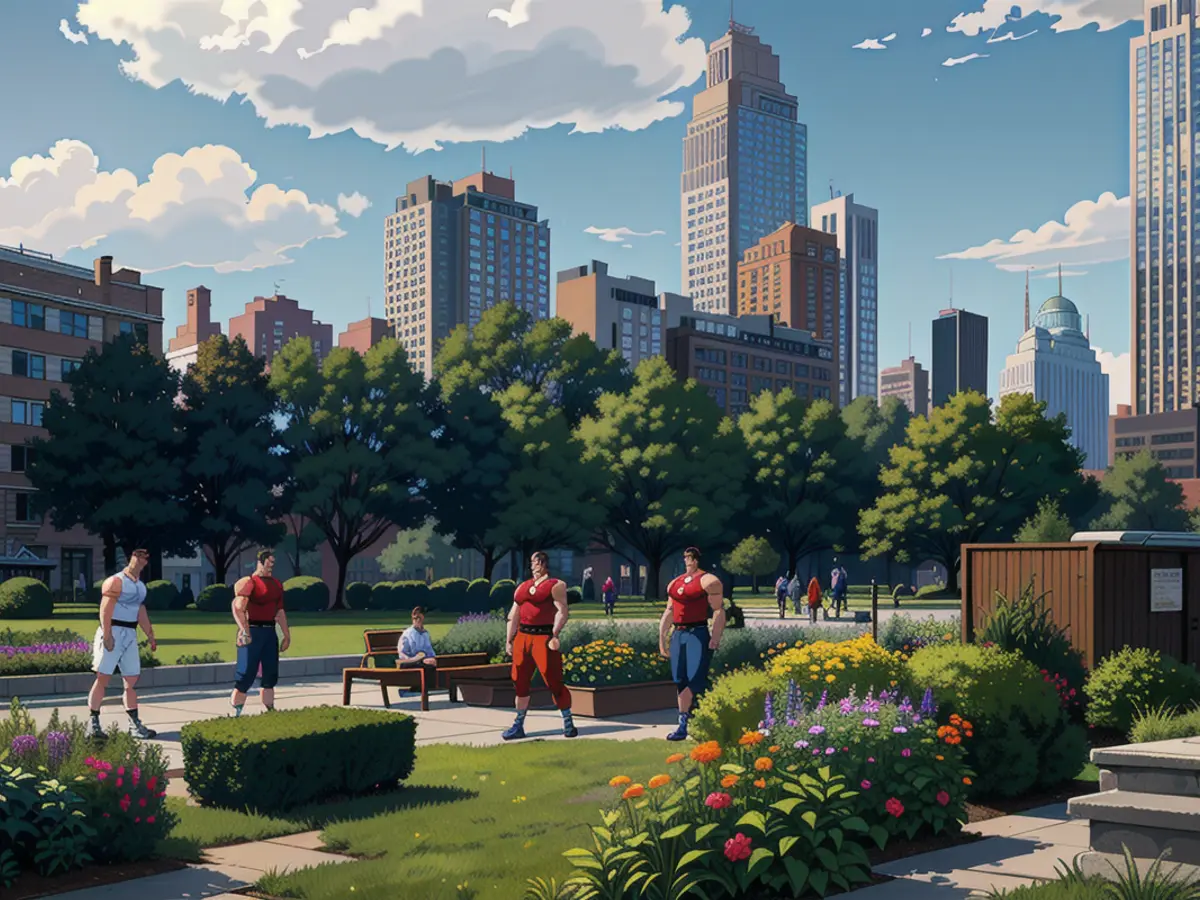Title: A Garden Revival as Trump Returns to the White House
Feeling overwhelmed and disheartened by the election results, many people, including Mosher, are turning to gardening as a means of taking control and saving money. With promises of deporting immigrants and instituting tariffs, President-elect Trump's policies could lead to higher food costs, particularly for produce. This has sparked a budding trend of people doubling down on gardening efforts to grow their own food supplies.
For Mosher, a fixed income and the prospect of higher food costs are significant concerns. While growing her own vegetables may not alleviate her budget completely, it's a small effort to reduce the financial burden. She plans to expand her garden to provide food for her family and friends as well.

Capital Roots, a nonprofit organization that runs 55 community gardens around Albany, New York, has seen a surge in applications for membership. From Election Day through this year's start, they've received 31 new applications, nearly triple the number from the same period last year and in 2022. The organization celebrated its 50th year in 2023 and had 840 active members in 2022. New members are welcomed based on plot availability.

Community gardens have a long history, dating back over a century. During economically challenging periods, people would transform vacant spaces into food sources. This trend gained momentum during World War I and II when the push for victory gardens made America less reliant on foreign food sources and helped supplement rations. In the 1970s, as food prices soared, community gardening took off as an affordable food alternative for those lacking resources or knowledge.

Melany Bradshaw, a licensed mental health counselor, was one of the 31 new applicants looking for a community garden plot. After the election, she felt the need to be more sustainable and independent, and saw community gardening as a possible option. The program is subscription-based and includes seeds, instruction, and tools for the season, although it does not turn away members unable to pay.

Robert Hunter, a retiree living in rural Arkansas, took up gardening five years ago due to limited produce choices at local grocery stores. He now grows a variety of fruits and vegetables and donates excess to food pantries. To prepare for potential tariffs, he bought a commercial-grade wood chip shredder. Despite the new shredder's high price tag, its components are mainly metal and made in China, making it a potential tariff target. However, Hunter feels relatively shielded from increased tariffs as he already has seeds and gardening tools.

In conclusion, the presidential election results and potential food cost increases have had an indirect impact on home and community gardening trends in the US. The uncertainty and potential price hikes have encouraged people to take control of their food sources and reduce reliance on store-bought produce. This has resulted in a growing interest in gardening as a sustainable, cost-effective solution.

The surge in community garden applications can be attributed to the economy's uncertainty and potential food cost increases, with many people seeking to grow their own food as a means of saving money. Businesses related to gardening, such as seed suppliers and tool manufacturers, may experience an increase in demand due to this trend.








